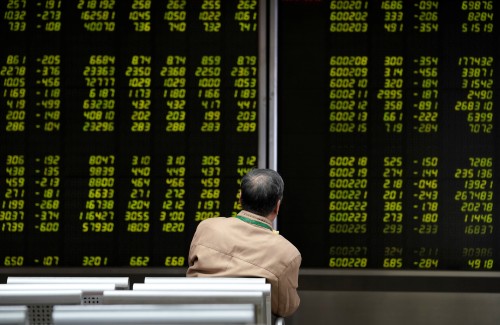By Jamie McGeever
(Reuters) – A look at the day ahead in Asian markets.
As investors make last-minute position adjustments ahead of the U.S. presidential election, a flood of top-tier economic indicators and a major policy decision could kick trading activity in Asian markets up a couple of gears on Tuesday.
Inflation numbers from South Korea, the Philippines and Thailand, third-quarter GDP from Indonesia, a services purchasing managers index report from China, and an interest rate decision from Australia all land before polling stations open across the U.S.
Japanese markets are open after Monday’s Cultural Day holiday, which should boost yen trading volume. The dollar slipped as low as 151.50 yen on Monday as U.S. yields retraced some of last week’s steep rise, and as investors unwound some of their so-called ‘Trump trades’ of recent weeks.
There was an eerie sense of a calm before the storm on Monday – world stocks were flat, Wall Street gave back some of Friday’s gains, Treasury yields dipped, and U.S. bond market volatility likely eased off Friday’s one-year high.
The weekend produced a flurry of polls that both Republicans and Democrats could point to as evidence they are on track to win the White House, the most notable perhaps being the Des Moines Register/Mediacom Iowa Poll which showed Kamala Harris has a surprise 3-point lead over Trump in the typically Republican-leaning state.
Even if that is the case, it still shows a very tight race. As Deutsche Bank’s Jim Reid highlights, RealClearPolitics data shows polling averages put Trump at 48.5% and Harris at 48.4%.
On this measure, the two candidates have been within two percentage points of each other since mid-August.
In terms of the popular vote, this could be the closest election on record, Reid notes.
Before that, however, Tuesday’s Asia & Pacific calendar is brimming with key releases, chief among them the Reserve Bank of Australia’s policy decision.
The RBA is widely expected to leave its cash rate on hold at 4.35%, where it has been since November last year, in the face of solid economic growth and sticky core inflation.
Traders reckon the RBA will be one of the most hawkish G10 central banks, cutting rates by little more than 50 basis points by the end of next year. That compares with cumulative cuts of 100 bps or more from their counterparts in the U.S., Euro zone, Britain, Canada and New Zealand.
Annual inflation in South Korea is expected to have cooled to 1.4% in October, which would be the lowest since February 2021, while Indonesia’s economy expanded at an annual rate of 5% in the July-October period, according to a Reuters poll.
If China’s manufacturing PMI figures are any guide, the Caixin services PMI on Tuesday could show the sector recorded modest growth in October.
Here are key developments that could provide more direction to markets on Tuesday:
– U.S. presidential election
– Australia central bank decision
– China Caixin services PMI (October)
(Reporting by Jamie McGeever, editing by Bill Berkrot)













